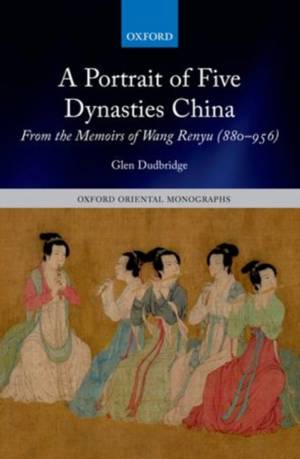
Bedankt voor het vertrouwen het afgelopen jaar! Om jou te bedanken bieden we GRATIS verzending (in België) aan op alles gedurende de hele maand januari.
- Afhalen na 1 uur in een winkel met voorraad
- In januari gratis thuislevering in België
- Ruim aanbod met 7 miljoen producten
Bedankt voor het vertrouwen het afgelopen jaar! Om jou te bedanken bieden we GRATIS verzending (in België) aan op alles gedurende de hele maand januari.
- Afhalen na 1 uur in een winkel met voorraad
- In januari gratis thuislevering in België
- Ruim aanbod met 7 miljoen producten
Zoeken
A Portrait of Five Dynasties China
From the Memoirs of Wang Renyu (880-956)
Glen (Emeritus Fellow of University College and of Wolfson Colle
€ 163,45
+ 326 punten
Omschrijving
A portrait of daily life in tenth-century China during the turbulent period of transition following the disintegration of the Tang dynasty, using the anecdotal memoirs of the scholar Wang Renyu and providing extensive translations of these hitherto unreconstructed texts.
Specificaties
Betrokkenen
- Auteur(s):
- Uitgeverij:
Inhoud
- Aantal bladzijden:
- 286
- Reeks:
Eigenschappen
- Productcode (EAN):
- 9780199670680
- Verschijningsdatum:
- 28/02/2013
- Uitvoering:
- Hardcover
- Afmetingen:
- 161 mm x 240 mm
- Gewicht:
- 572 g

Alleen bij Standaard Boekhandel
+ 326 punten op je klantenkaart van Standaard Boekhandel
Beoordelingen
We publiceren alleen reviews die voldoen aan de voorwaarden voor reviews. Bekijk onze voorwaarden voor reviews.









